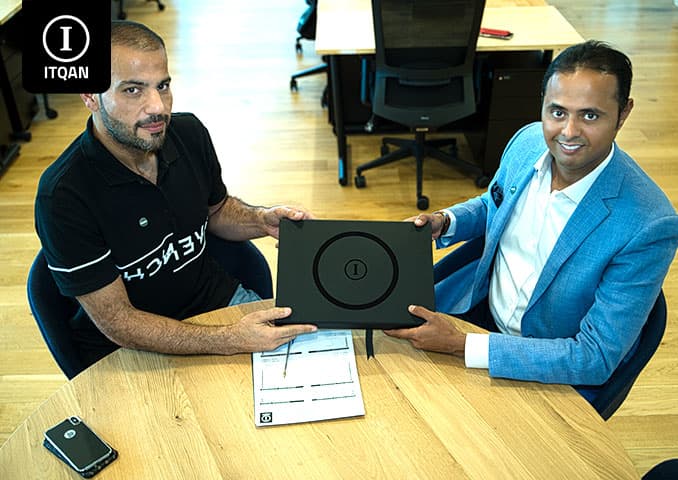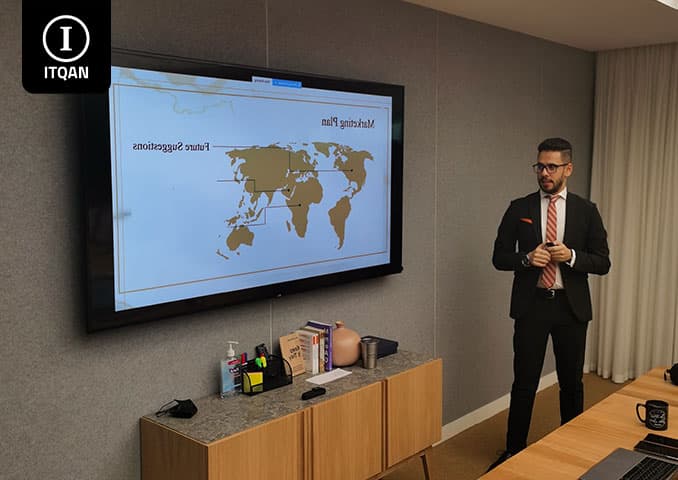How to establish a company in Dubai for Saudis? Dubai is a distinctive investment destination for Saudis looking to establish their companies in a vibrant economic environment. Dubai has an advanced infrastructure, flexible investment laws, and a strategic location that makes it a global business center. Dubai offers many facilities for foreign companies, including the possibility of full ownership of businesses in free zones, and providing flexible solutions for establishing companies of various types, whether individual companies or branches of Saudi companies. Thanks to these advantages, the Saudi investor can take advantage of the growth opportunities available in Dubai and achieve global expansion for his business. Through this article, we will review some details about establishing a company in Dubai for Saudis .

جدول المحتوى
ToggleSteps to establish a company in Dubai for Saudis
Establishing a company in Dubai for Saudis requires following a set of organized steps to ensure compliance with local laws and benefit from available investment opportunities. Here are the most important of these steps:
- Determine the type of company: You must choose the appropriate type of company, such as a limited liability company (LLC), a company in a free zone, or a branch of a Saudi company.
- Choosing a business activity: It is important to determine the business activity you want to practice, as it must comply with local regulations and permitted activities in Dubai.
- Determining the company’s location: Saudis can choose to establish the company in Dubai within the free zones, which provide benefits such as full ownership of the company, or within Dubai itself within the local market.
- Reserve a trade name: A unique trade name for the company must be chosen and reserved with the Dubai Department of Economic Development.
- Obtaining initial approvals: Initial approvals must be obtained from the relevant authorities, such as the Department of Economic Development, and the relevant authorities if the activity requires a special license.
- Preparing the articles of association: The company’s articles of association and the partners’ agreement, if any, are drafted and documented with the official authorities.
- Obtaining a commercial license: After submitting the necessary documents and paying the required fees, the commercial license is issued to practice the activity in Dubai.
- Opening a bank account: A bank account must be opened for the company in a local bank to facilitate financial transactions.
- Office Rental: The company must secure a physical office in Dubai to provide its services, as per the licensing requirements.
- Tax Registration: If the company’s annual revenue exceeds the VAT registration threshold, the company must be registered with the Federal Tax Authority. Following these steps ensures that Saudis can establish a successful company in Dubai and benefit from the attractive investment environment.
Advantages of establishing a company in Dubai for Saudis
Establishing a company in Dubai provides Saudis with many advantages that make it a preferred investment destination. The most prominent of these advantages are:
- Full ownership: Saudis can establish companies in Dubai’s free zones with 100% ownership of the company, without the need for a local partner, providing greater flexibility in managing the business.
- Stable investment environment: Dubai has a diversified and stable economy, providing Saudis with a safe investment environment for growth and expansion.
- Strategic Location: Dubai is located in a geographical location that connects Europe, Asia and Africa, making it a global center for trade and transportation, and providing Saudis with the opportunity to easily access new markets.
- Advanced infrastructure: Dubai offers world-class infrastructure including advanced airports, ports, and advanced communication networks, which contribute to supporting businesses and facilitating logistics operations.
- Attractive tax system: Dubai has no taxes on personal income or business profits in most activities, which increases investment returns.
- Government facilities: The UAE government offers many facilities to Saudi investors, including fast procedures for establishing companies, and providing government support for expansion in local and international markets.
- Cultural and Professional Diversity: Dubai has a diverse international community, allowing Saudi companies to access a wide pool of talent from different cultures and skills. These features make Dubai an ideal destination for Saudis looking to expand their businesses and achieve commercial success on an international level.
Documents required to establish a company in Dubai for Saudis
Establishing a company in Dubai for Saudis requires submitting a set of papers and documents to ensure compliance with local laws and procedures. Here are the required documents:
- Copy of Passport: A clear copy of the passport of each partner or owner of the company must be submitted.
- Photo: Passport size photos of each partner or owner are usually required.
- Residence Visa (if required): If the investor is a resident of the UAE, a copy of the residence visa and Emirates ID will be required.
- Trade Name: A proposal for the desired trade name of the company must be submitted, and it must be in compliance with local regulations and reserved with the Department of Economic Development.
- Business Plan: Sometimes, a business plan is required that outlines the type of business and the company’s future goals.
- Company Articles of Association: A company article of association must be prepared that specifies the details of the company such as partners, business activities, and the distribution ratio among partners.
- Approval from relevant authorities: Some business activities require approvals from regulatory authorities or specific ministries (such as the Ministry of Health, or the Tourism Authority).
- Physical Address: The physical office address where the company will operate must be provided, and the lease agreement is provided as a supporting document.
- Commercial License: If the company is a branch of a Saudi company, a copy of the commercial license of the parent company in Saudi Arabia must be submitted, in addition to the certificate of incorporation and the notarized articles of association. By submitting these documents and completing the procedures, Saudis can establish a company in Dubai and start practicing their business in accordance with local laws.
Obtaining a commercial license to establish a company in Dubai for Saudis
Obtaining a commercial license to establish a company in Dubai for Saudis requires following a set of procedures and adhering to the required conditions. Here are the main steps to obtain a commercial license:
- Choosing the business activity: The first step is to determine the business activity that the company will be engaged in. The activity must be chosen from the list of available activities approved by the Department of Economic Development in Dubai.
- Determine the legal form of the company: Choose the appropriate legal form for the company, such as a limited liability company (LLC), a company in a free zone, or a branch of a Saudi company.
- Trade Name Reservation: A unique trade name for the company must be reserved with the Department of Economic Development, ensuring that it complies with local standards and laws.
- Obtaining initial approvals: After selecting the activity, legal form, and reserving the trade name, an application for initial approval is submitted from the Department of Economic Development. Some commercial activities may require additional approvals from the relevant authorities.
- Preparing the Articles of Association: The company’s articles of association must be prepared and legally documented. This agreement specifies the percentage of shares distributed among the partners and the rights and obligations of each partner.
- Renting an office: A physical address for the company and renting an office in Dubai are required. The lease agreement is submitted as part of the paperwork required to obtain a trade license.
- Submitting the required documents: The required documents include copies of the founders’ passports, personal photos, initial approvals, the lease contract, and the articles of association. These documents are submitted to the Department of Economic Development.
- Payment of fees: After submitting the documents, the fees required to obtain the commercial license must be paid. The fees vary depending on the type of activity and the legal form of the company.
- Receiving the trade license: Once the fees are paid and all requirements are completed, the trade license is issued to the company. After obtaining it, the company can start practicing its activity legally in Dubai.
- These steps allow Saudis to obtain a commercial license and establish their companies in Dubai with flexibility and speed, which makes it easier for them to enter the UAE market and benefit from the available investment opportunities.
In conclusion, establishing a company in Dubai is an ideal opportunity for Saudis to benefit from a sophisticated investment environment and a strategic location that makes it a gateway to global markets. Thanks to government facilities, advanced infrastructure, and flexible legal procedures, Saudis can achieve great success and expand their businesses effectively. Dubai offers tremendous opportunities for growth and innovation in various sectors, making it a smart choice for Saudi investors aspiring to strengthen their presence in the global market.
Frequently asked questions about establishing a company in Dubai for Saudis
Can Saudis fully own a company in Dubai?
Yes, Saudis can own 100% of the company in the free zones. However, in the local market, a local partner may be required in some cases.
How long does it take to obtain a commercial license?
The time depends on the type of company and business activity, but it usually takes from one week to 10 business days once all required documents are submitted.
Can Saudis establish a company remotely?
Yes, Saudis can submit company establishment applications online through the platforms of the relevant government agencies such as the Department of Economic Development or the authorities responsible for free zones.



 100vw, 678px srcset=)














